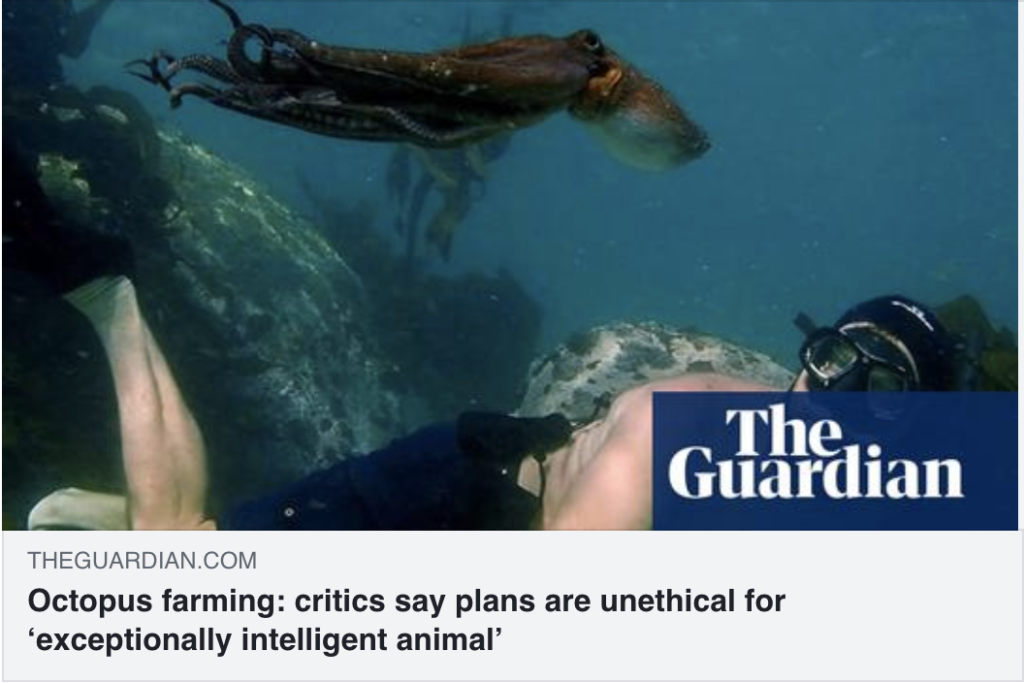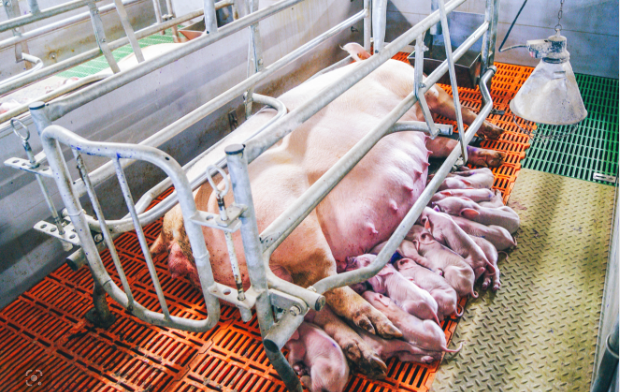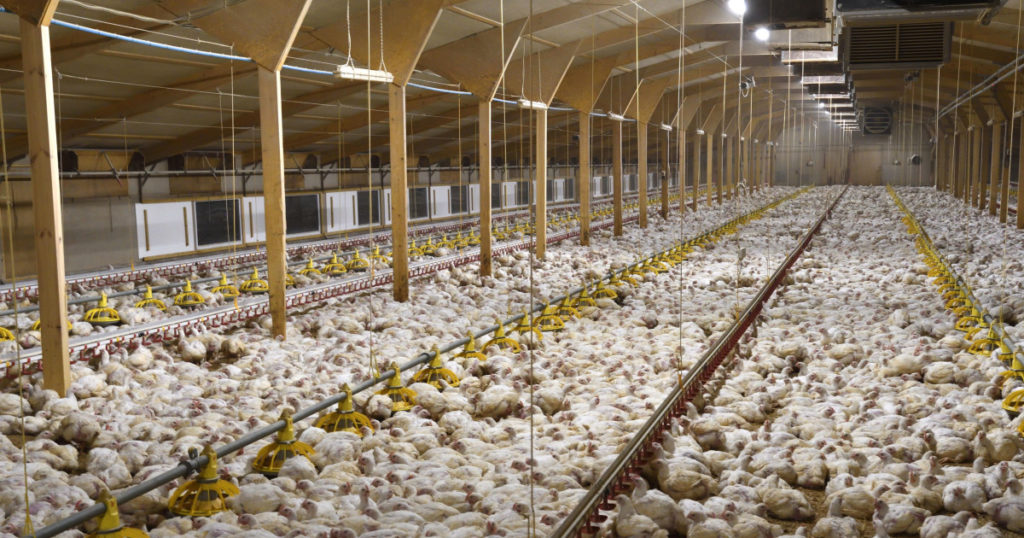But can they suffer?
Ellen Pasternak suggested in UnHerd magazine that it is hypocritical to be willing to eat animals but to object to cruelty towards them. The proximate cause of her ire is the news that octopus farms are suddenly commercially viable and that the Usual Suspects are objecting on the grounds of animal cruelty.
“The question is not, Can they reason?, nor Can they talk? but, Can they suffer? Why should the law refuse its protection to any sensitive being?” – Bentham (1789)
When the Spanish seafood firm Nueva Pescanova recently announced its plan to open the world’s first octopus farm, many animal rights activists (and the wider public) reacted with horror. Taking intelligent creatures from the wild to exploit them for human gain is seen instinctively as a moral step backwards.
Ellen Pasternak in UnHerd magazine
Ms Pasternak suggested that the only relevant moral line is the one between humans and other animals: humans — be kind to them and don’t eat them; other animals — eat them and be as cruel as required to turn a profit. I suspect that Ms Pasternak is missing the point of concerns about octopus farming.
I am a confirmed meat-eater and my favourites include a rack of lamb and a nice juicy steak but my favourite dish of all is octopus stew. I am well aware that for me to enjoy my culinary delights, animals have to die. That fact does not overly concern me. It is the way of the natural world. I would gladly slaughter the lamb or kill the octopus myself.
However, I am absolutely appalled by the way that industrial farming treats animals, especially in the USA, which mostly follows Ms Pasternak’s ethical rule to treat only animals on the near side of the human/other line with respect.
You’ve all, no doubt, seen the way that industrial farmers keep sows in farrowing cages where the sow is unable to move or even see her piglets. You’ve seen the dark, fetid charnel houses where chickens are raised for eating. You’ve seen the way that calves are removed from their mothers and crammed into warehouses of death.
Many vegetarians argue for a complete ban on meat eating. I don’t think an outright ban is morally justified and neither is it good politics. Meat eaters have too many votes for this approach to be successful.
I have, however, been persuaded that the suffering we inflict on animals in the food production industry is cruel and unnecessary and it demeans us as well as them. It’s perfectly possible to raise cows, pigs and sheep with respect and to kill them humanely. We have been doing it for thousands of years.
Ms Pasternak’s ethical bright line should be extended to include the animals that we rely on for food and that rely on us for care. The way that we raise chickens is appalling but I dread to imagine the horrors that we will inflict on conscious and intelligent molluscs. I gave up eating octopus three weeks ago for precisely this reason.
An ethical approach to meat-eating will require us to eat less meat and to source it from farmers who treat their animals with respect. We’ll have to learn to treat ribeye steak as an occasional luxury instead of a cheap sandwich that we eat 5 days a week. Pigs raised in humane conditions actually taste nicer. You should try them. For the other days of the week, vegetarian substitutes are a pleasant variation.
An ethical approach to sustainable farming is the way forward if we want to move past this atrocious period in animal husbandry—there’s no need to ban meat-eating.
The climate will thank us too.



